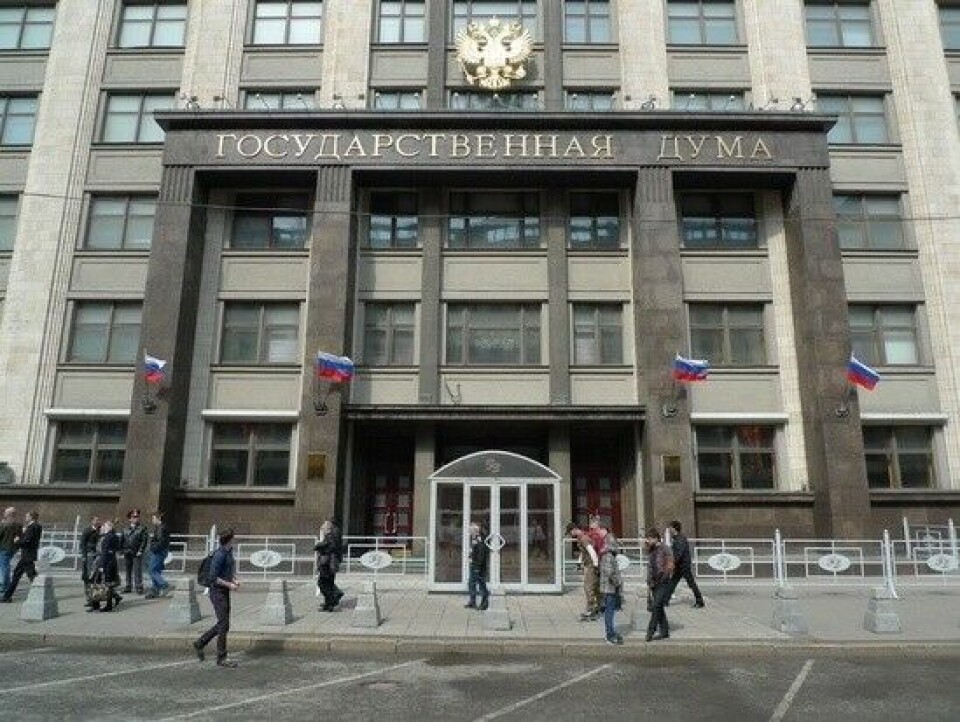
Russia backs penalties for attending ‘Undesirable’ courses abroad
Russian lawmakers tasked with weeding out foreign interference have endorsed penalties for Russian nationals who attend “undesirable” NGO courses abroad, the country’s parliament said Thursday.
The lower-house State Duma formed a special commission on foreign meddling in Russia after mass anti-government rallies rocked Moscow this summer. Since then, it has accused foreign news outlets, U.S. diplomats and Google of encouraging people to attend the opposition protests.
The commission has proposed punishing Russians “for participating in events held abroad by foreign and international NGOs whose activities are ruled undesirable in Russia,” the Duma said.
“The most common form [of foreign interference] is training future ‘specialists’ abroad who fit the profile,” commission chairman Vasily Piskaryov said.
Russia has blacklisted 19 foreign organizations as “undesirable” under a 2015 law that allows prosecutors to limit or halt their work. The law imposes fines or prison terms of up to six years on members of these groups.
The Duma commission accused these groups of influencing election campaigns, engaging minors in mass riots and “forming public tolerance to drug use by promoting its consumption and legalization.”
Furthermore, the “undesirable” groups interfered by allegedly grooming their own candidates for Russia’s elections, the state-run TASS news agency quoted Piskaryov as saying. He declined to name the candidates.
“[There is] administrative and criminal liability if the events take place in Russia,” Piskaryov was quoted as saying.
“But given that there’s no penalty for training at these centers abroad, they’ve all migrated from Russia,” he added.
The training courses on so-called meddling are carried out in the Czech Republic, Finland and the Baltic states, Piskaryov was quoted as saying.
Members of the Duma commission plan to consider the penalties for Russians who attend “undesirable” foreign courses “in the near future,” it said.
This article first appeared in The Moscow Times and is republished in a sharing partnership with the Barents Observer.















